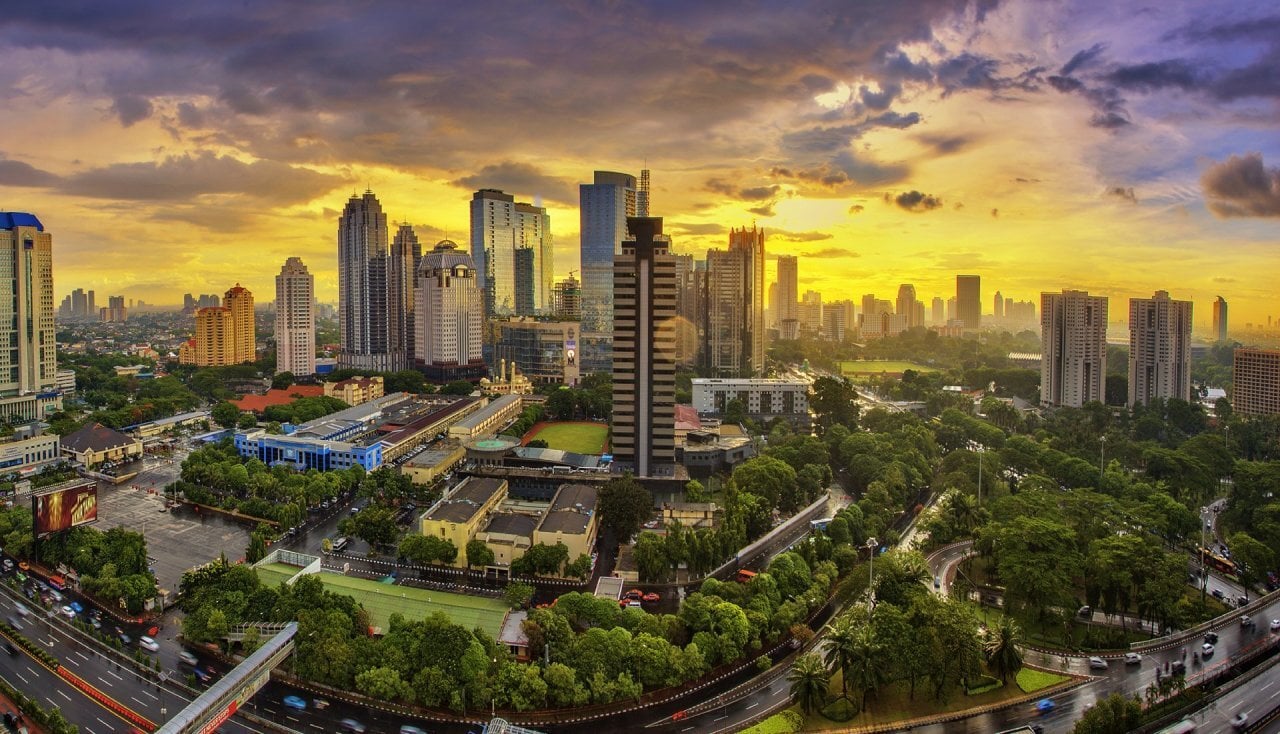Tipping in South Korea – Is it Customary to Tip in South Korea?
Tipping culture can be a real puzzle, especially when you’re exploring a new country, and if you’re planning a trip to South Korea, you might be wondering if you need to leave a little extra for good service or if it’s considered out of place.
At Crown Currency Exchange, we’ve put together this guide to tipping in South Korea to help remove any confusion and ensure you’re able to enjoy your trip to the fullest without accidentally causing offence to the country’s culture. Here, we’ll cover when a tip might be appreciated, how to go about giving one, and the situations in which it would be best to just say thanks and move on.
What is the Tipping Culture in South Korea?

Tipping in South Korea is neither expected nor customary, and this is rooted in the country’s culture and history, where providing good service is considered a basic standard rather than an extra that warrants additional payment. Also, as Korean service providers are paid a fair wage, there’s no reliance on tips to help supplement their earnings in the same way as some Western countries.
South Korean culture also places a strong emphasis on humility and respect, and this mean that the act of tipping can be seen as unnecessary or even rude in some cases. As such, you are never expected to tip following good service, and while there are some instances in which you can, there’s no obligation to do so.
Why is Tipping Uncommon in South Korea?
The main reason why tipping in South Korea is uncommon is because the country’s culture believes that excellent service should be a given, not something that requires an additional reward. As such, tipping can be seen as an unnecessary gesture.
As well as potentially causing offence, another reason why tipping culture in South Korea is uncommon is because the etiquette around giving money in South Korea is quite formal. Money is usually exchanged using both hands or with a slight bow to signify respect, and tipping can often clash with these formal practices, making both the giver and the receiver uncomfortable.
Most service sector jobs in South Korea include a fair wage, too, and this means that there isn’t a financial necessity for tips to make up a portion of the worker’s income. Also, the service charge is often included in the bill at higher-end establishments, and this makes the need for tipping redundant.
When Should You Consider Leaving a Tip?

Although tipping is not a common practice in South Korea, there are certain situations where leaving a tip is appreciated, and knowing these exceptions can help you navigate social norms without causing any offence.
Hotel Staff
In upscale hotels, especially those that cater to international guests, tipping is more likely to be common and, while not expected, certainly appropriate. However, there are only certain members of hotel staff that you need to worry about tipping – concierge and porters.
What is a Fair Tip to Leave Hotel Staff in South Korea?
You should consider tipping around ₩1,000 – ₩2,000 Korean Won ($1 – $2 AUD) per bag for hotel porters, and a similar amount would be appropriate for concierge staff per request.
Tour Guides
If you have enjoyed a guided tour and feel that the guide went the extra mile to make your experience a memorable one, leaving a tip is a good way of showing your appreciation. Likewise, if you have hired a private tour guide, you should definitely consider leaving them a tip.
What is a Fair Tip to Leave Tour Guides in South Korea?
A tip of around ₩10,000 KRW ($11 AUD) for a full-day tour is reasonable. Just remember, in line with South Korean culture, while tour guides might appreciate a tip, they will not expect it.
Restaurants
In most restaurants, tipping is not expected as a service charge is usually included in the bill. However, in high-end restaurants with a strong international clientele, it would be appropriate to leave a tip if you feel the service was exceptional.
What is a Fair Tip to Leave Restaurant Staff in South Korea?
There’s no need to go overboard with tipping in restaurants, no matter how good you felt the service was, and a small tip of 5%-10% of the bill would be appropriate. So, say your meal total comes to ₩89,200 KRW (100 AUD), you can leave a maximum tip of ₩8,920 KRW ($10 AUD).
Taxi Drivers
As with most cases, tipping taxi drivers is not customary in South Korea, but if a driver helps you with heavy luggage or provides outstanding service, it would be appropriate to offer them a tip.
What is a Fair Tip to Leave Taxi Drivers in South Korea?
You have two options when tipping taxi drivers in South Korea. The first is to leave a small tip of ₩1,000 – ₩2,000 Korean Won ($1 – $2 AUD), and the second is to round the total fare up.
South Korean Tipping Etiquette: How to Give a Tip?

When it comes to tipping in South Korea, it’s important to handle it with care and respect for local customs, and if you do decide to leave a tip, it’s best to do so discreetly.
South Korean culture values subtlety and overt gestures can sometimes cause discomfort. So, instead of making a show of it, you should place the tip in an envelope and leave it for the recipient to discover or hand it over in a low-key manner, using both hands. This approach not only aligns with the cultural norm of showing respect but also avoids any potential embarrassment for the recipient.
Cash is also the preferred method for tipping, so keep a small amount of Korean Won on hand for tips at all times. Timing also matters! For instance, it’s customary to tip hotel staff at the end of your stay, tour guides after the tour concludes, and bellboys or taxi drivers immediately after they’ve provided their service. This approach ensures that your tip is both timely and thoughtful.
Are There Any Cases Where You Should Avoid Tipping in South Korea?
In South Korea, there are several situations where tipping is neither appropriate nor expected. For instance, on public transportation such as buses, subways, and trains, tipping is simply not part of the practice. The fare you pay is considered sufficient for the service provided by drivers and conductors.
Professional services also fall outside the realm of tipping, and whether you’re visiting a doctor, dentist, or lawyer, tipping is not expected. These professionals have set fees that cover their services, and offering a tip might come across as inappropriate or confusing.
In retail settings, from high-end boutiques to local markets, tipping is not a part of the shopping experience either and the prices at the checkout include all costs, and store employees do not anticipate tips.
Heading to South Korea? Get the Best Rates on Korean Won at Crown Currency
Are you heading to South Korea soon? Get ahead of the game and prepare for your trip by visiting Crown Currency Exchange, where you’ll find the best rates on Korean Won with no commission fees or hidden costs. Head to one of our many locations today and our friendly, experienced team will be happy to help with your currency exchange needs.
FAQs
What is the Tipping Culture in South Korea?
Tipping in South Korea is neither expected nor customary, and this is rooted in the country’s culture and history, where providing good service is considered a basic standard rather than an extra that warrants additional payment. Also, as Korean service providers are paid a fair wage, there’s no reliance on tips to help supplement their earnings in the same way as some Western countries.
South Korean culture also places a strong emphasis on humility and respect, and this mean that the act of tipping can be seen as unnecessary or even rude in some cases. As such, you are never expected to tip following good service, and while there are some instances in which you can, there’s no obligation to do so.
Why is Tipping Uncommon in South Korea?
The main reason why tipping in South Korea is uncommon is because the country’s culture believes that excellent service should be a given, not something that requires an additional reward. As such, tipping can be seen as an unnecessary gesture.
As well as potentially causing offence, another reason why tipping culture in South Korea is uncommon is because the etiquette around giving money in South Korea is quite formal. Money is usually exchanged using both hands or with a slight bow to signify respect, and tipping can often clash with these formal practices, making both the giver and the receiver uncomfortable.
Most service sector jobs in South Korea include a fair wage, too, and this means that there isn’t a financial necessity for tips to make up a portion of the worker’s income. Also, the service charge is often included in the bill at higher-end establishments, and this makes the need for tipping redundant.
When Should You Consider Leaving a Tip?
Although tipping is not a common practice in South Korea, there are certain situations where leaving a tip is appreciated, and knowing these exceptions can help you navigate social norms without causing any offence.
Hotel Staff
In upscale hotels, especially those that cater to international guests, tipping is more likely to be common and, while not expected, certainly appropriate. However, there are only certain members of hotel staff that you need to worry about tipping – concierge and porters.
What is a Fair Tip to Leave Hotel Staff in South Korea?
You should consider tipping around ₩1,000 – ₩2,000 Korean Won ($1 – $2 AUD) per bag for hotel porters, and a similar amount would be appropriate for concierge staff per request.
Tour Guides
If you have enjoyed a guided tour and feel that the guide went the extra mile to make your experience a memorable one, leaving a tip is a good way of showing your appreciation. Likewise, if you have hired a private tour guide, you should definitely consider leaving them a tip.
What is a Fair Tip to Leave Tour Guides in South Korea?
A tip of around ₩10,000 KRW ($11 AUD) for a full-day tour is reasonable. Just remember, in line with South Korean culture, while tour guides might appreciate a tip, they will not expect it.
Restaurants
In most restaurants, tipping is not expected as a service charge is usually included in the bill. However, in high-end restaurants with a strong international clientele, it would be appropriate to leave a tip if you feel the service was exceptional.
What is a Fair Tip to Leave Restaurant Staff in South Korea?
There’s no need to go overboard with tipping in restaurants, no matter how good you felt the service was, and a small tip of 5%-10% of the bill would be appropriate. So, say your meal total comes to ₩89,200 KRW (100 AUD), you can leave a maximum tip of ₩8,920 KRW ($10 AUD).
Taxi Drivers
As with most cases, tipping taxi drivers is not customary in South Korea, but if a driver helps you with heavy luggage or provides outstanding service, it would be appropriate to offer them a tip.
What is a Fair Tip to Leave Taxi Drivers in South Korea?
You have two options when tipping taxi drivers in South Korea. The first is to leave a small tip of ₩1,000 – ₩2,000 Korean Won ($1 – $2 AUD), and the second is to round the total fare up.
South Korean Tipping Etiquette: How to Give a Tip?
When it comes to tipping in South Korea, it’s important to handle it with care and respect for local customs, and if you do decide to leave a tip, it’s best to do so discreetly.
South Korean culture values subtlety and overt gestures can sometimes cause discomfort. So, instead of making a show of it, you should place the tip in an envelope and leave it for the recipient to discover or hand it over in a low-key manner, using both hands. This approach not only aligns with the cultural norm of showing respect but also avoids any potential embarrassment for the recipient.
Cash is also the preferred method for tipping, so keep a small amount of Korean Won on hand for tips at all times. Timing also matters! For instance, it’s customary to tip hotel staff at the end of your stay, tour guides after the tour concludes, and bellboys or taxi drivers immediately after they’ve provided their service. This approach ensures that your tip is both timely and thoughtful.
Are There Any Cases Where You Should Avoid Tipping in South Korea?
In South Korea, there are several situations where tipping is neither appropriate nor expected. For instance, on public transportation such as buses, subways, and trains, tipping is simply not part of the practice. The fare you pay is considered sufficient for the service provided by drivers and conductors.
Professional services also fall outside the realm of tipping, and whether you’re visiting a doctor, dentist, or lawyer, tipping is not expected. These professionals have set fees that cover their services, and offering a tip might come across as inappropriate or confusing.
In retail settings, from high-end boutiques to local markets, tipping is not a part of the shopping experience either and the prices at the checkout include all costs, and store employees do not anticipate tips.






.png)
